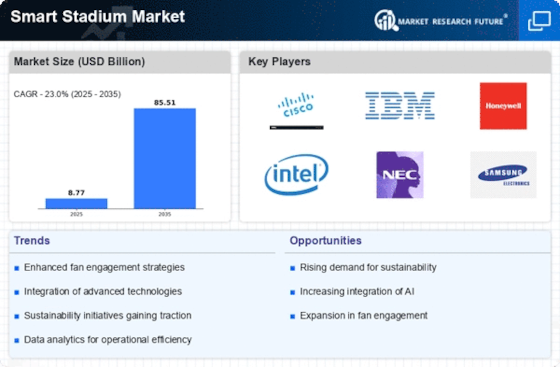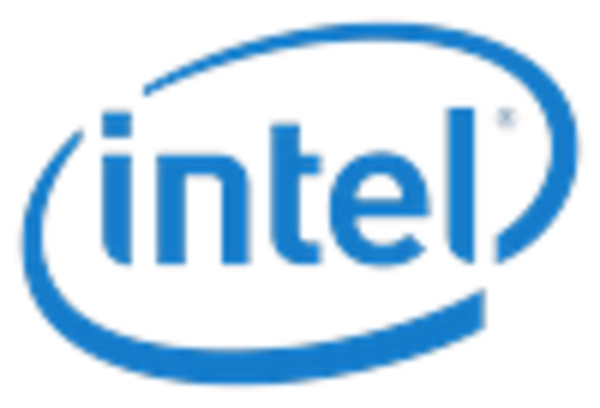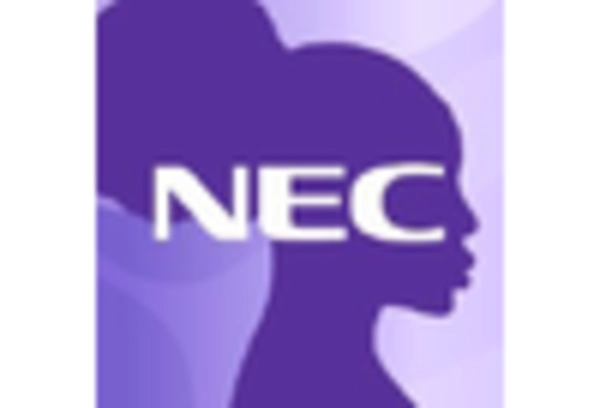Market Analysis
In-depth Analysis of Smart Stadium Market Industry Landscape
The Smart Stadium market has undergone substantial growth, driven by the intersection of sports and technology to enhance the overall fan experience. The market dynamics are shaped by a convergence of factors that leverage cutting-edge technologies to transform traditional sports venues into interconnected and immersive entertainment hubs. One of the primary drivers behind the rise of the Smart Stadium market is the increasing demand for enhanced fan engagement. With the integration of technologies like Wi-Fi, Bluetooth, and mobile apps, smart stadiums provide spectators with interactive and personalized experiences, such as real-time statistics, instant replays, and in-seat food ordering, elevating the overall enjoyment of live events.
Furthermore, the advent of the Internet of Things (IoT) and data analytics has significantly contributed to the market dynamics of smart stadiums. Sensors and connected devices throughout the venue collect and analyze data, offering insights into crowd behavior, traffic flow, and facility utilization. This data-driven approach allows stadium operators to optimize operations, improve safety, and enhance the overall fan experience. From efficient parking management to personalized promotions, smart stadiums leverage data to create a seamless and enjoyable event environment.
The demand for increased operational efficiency and sustainability has also influenced the growth of the Smart Stadium market. Smart technologies enable stadiums to implement energy-efficient solutions, such as smart lighting, heating, ventilation, and air conditioning (HVAC) systems. Additionally, waste management and water conservation initiatives contribute to the overall sustainability goals of modern sports venues. As environmental consciousness grows, stadiums are adopting smart solutions not only to improve the fan experience but also to align with global sustainability trends.
Moreover, the integration of artificial intelligence (AI) and augmented reality (AR) has played a crucial role in shaping the market dynamics of smart stadiums. AI-powered chatbots assist fans with queries and provide real-time information, while AR enhances the in-stadium experience through interactive overlays, virtual mascots, and immersive displays. These technologies not only entertain spectators but also open new avenues for sponsorship and advertising opportunities, further monetizing the smart stadium ecosystem.

















Leave a Comment